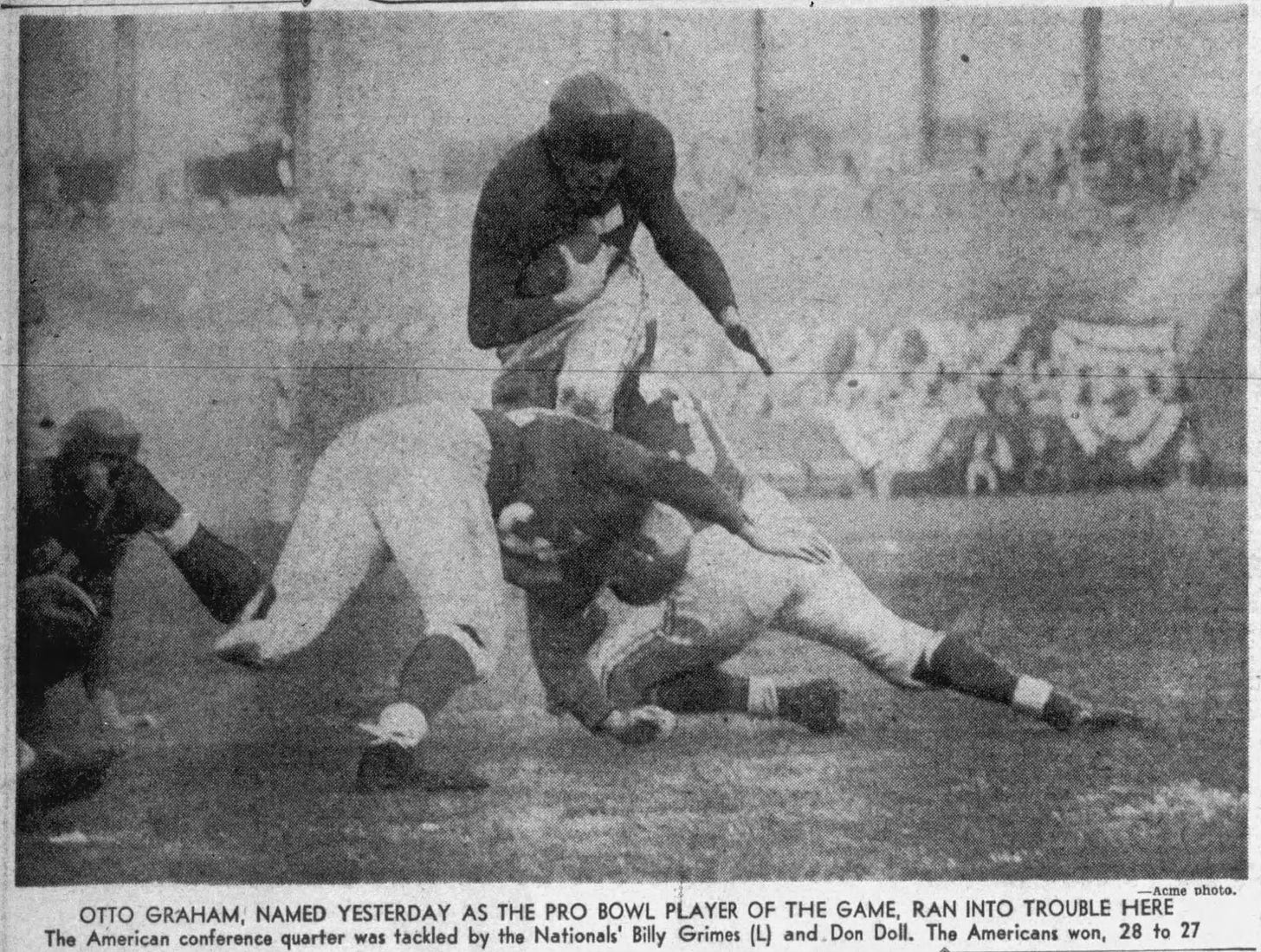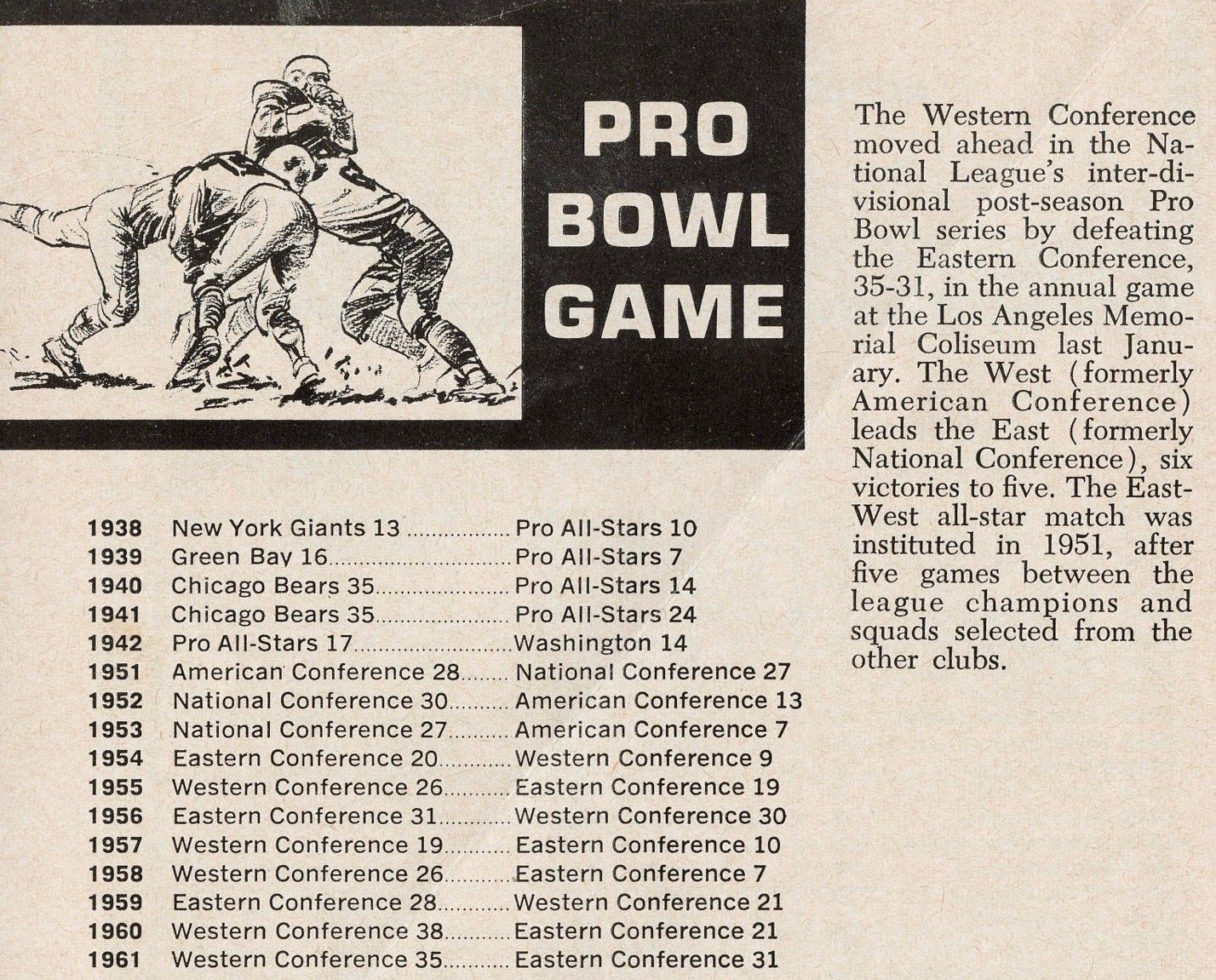Terminology... Pro Bowl
This is article #22 in a series covering the origins of football’s terminology. All are available under the Terminology tab above. My book, Hut! Hut! Hike! describes the emergence of more than 400 football terms.
Yale opened the 68,000-seat Yale Bowl in 1914. As the first enclosed stadium in the country, it earned the "bowl" description shortly after its design became public. Playing in the Yale Bowl was sometimes described as a "bowl game," and Yale's slate of home games was "bowl season."
Pasadena built its Tournament of Roses Stadium in 1922 to host its annual East-West Football Championship game. Despite the stadium being horseshoe-shaped when it opened, a reporter called it the Rose Bowl, and the name stuck.
As the nation began recovering from the Depression in the mid-1930s, business leaders in some cities used football games to attract tourists. The Orange Bowl debuted in 1934, the Sugar and Sun Bowls in 1935, and writers began describing the collection of postseason games as "bowl games" and "bowl season."
Bowl also started being applied to postseason games involving pro teams. For example, when the minor-league Paterson Panthers of New Jersey were to play the Dixie League champs in Richmond on New Year's Day 1937, their game was described as a pro "bowl," with pro being an adjective modifying the noun "bowl." Likewise, the NFL's Brooklyn Dodgers headed west to play the Salinas Iceberg Packers in the Lettuce Bowl in early 1937, which was described as a pro "bowl" as well.
Early 1937 also saw the Los Angeles Times sponsor an East-West NFL All-Star that some called "Pro Bowl," the first contest to receive that name. The game changed formats the following year, and from 1938 to 1942, the NFL champions played a team of NFL All-Stars. That meant the NFL champions played the Pro Bowl against the NFL All-Stars following the regular season and played the College All-Stars to open the following preseason, twice opening the champions to potential injury.
The New York Giant played the All-Stars in 1937, winning 13-10, and the NFL champs won the next three years, while the All-Stars won the fifth game.
The Pro Bowl game was suspended during WWII and did not return until the 1951 Pro Bowl that followed the 1950 season, during which the NFL added three former AAFC teams. The game format switched that year, so the league's American and National Conferences stars played one another, an approach that continued until recently.

Press reports indicate the early Pro Bowls were highly competitive games played for individual and conference pride. Yet, like every all-star game in sports highly dependent on structured plays, the games were also ragged affairs that lost their luster over time, leading to the Pro Bowl's elimination.
Football Archaeology is reader-supported. Click here to buy one of my books or otherwise support the site.


